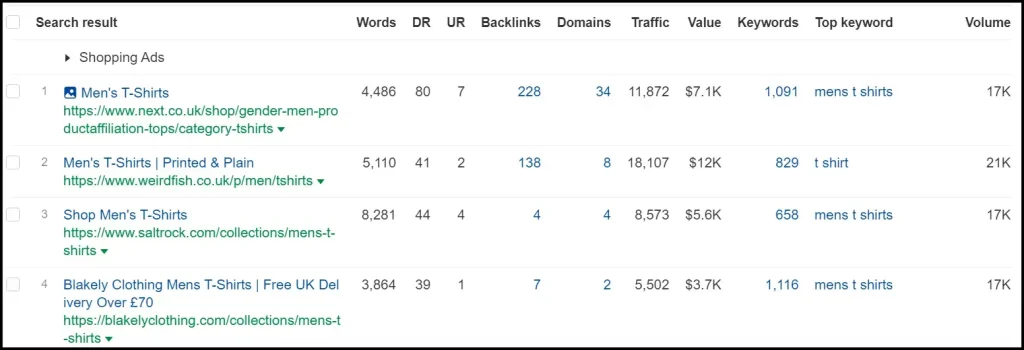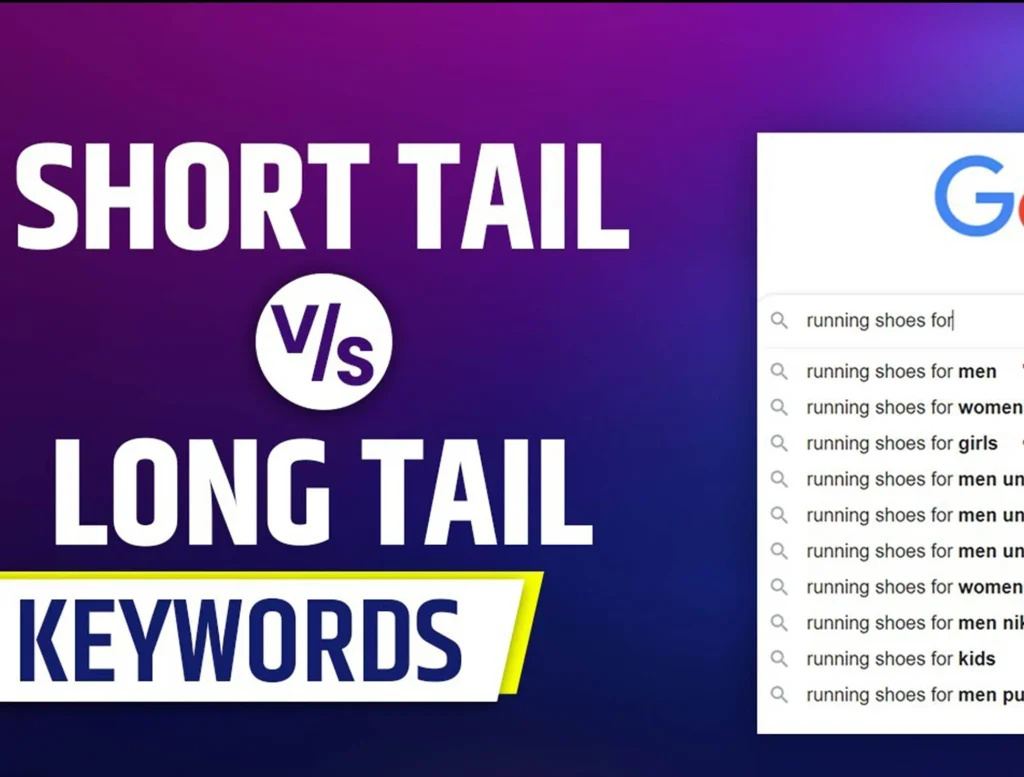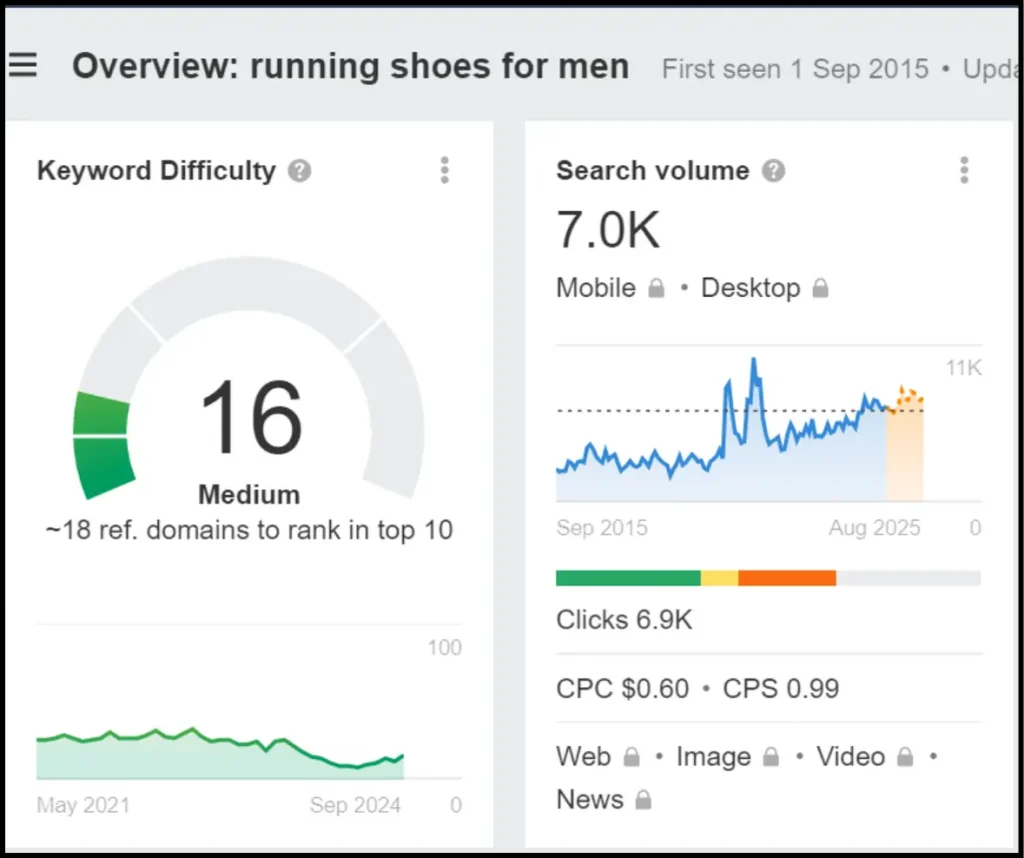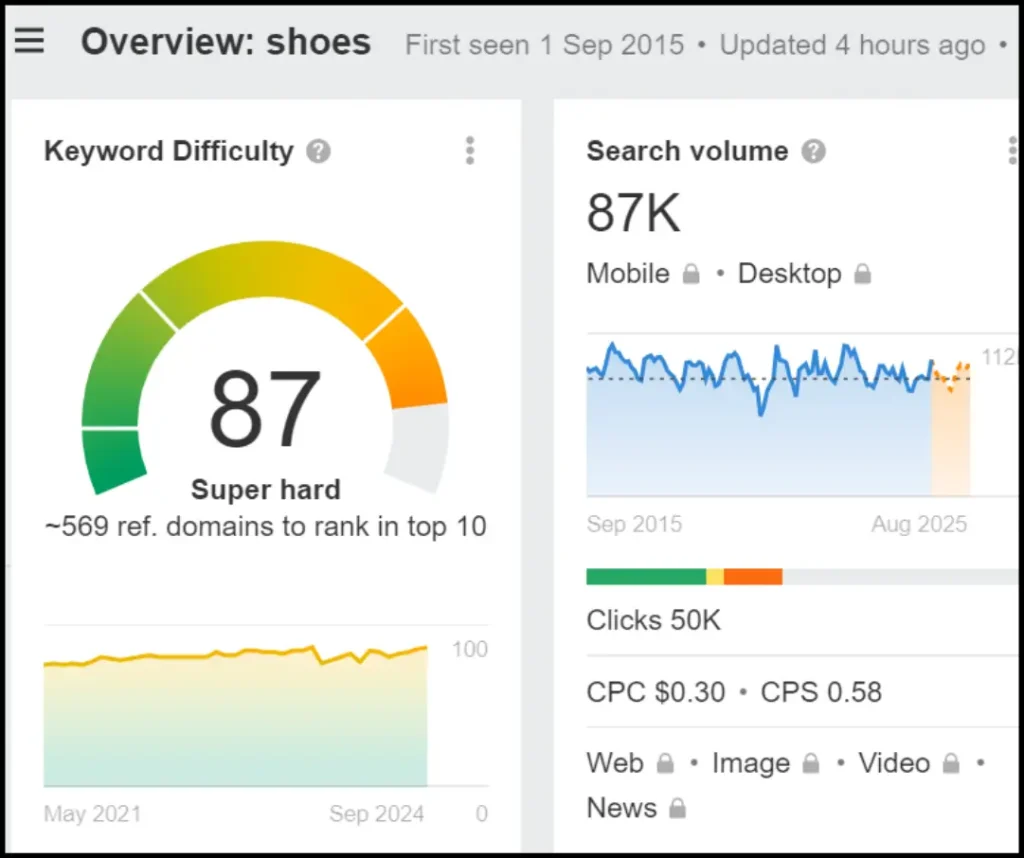Why is Keyword Research important in Digital Marketing in 2024: Complete Guide

Keyword research is a vital component of digital marketing because it directly impacts the effectiveness of SEO and helps businesses connect with their target audience. By identifying the right keywords, businesses can optimize their content to rank higher on search engines, leading to increased visibility and organic traffic. It also allows marketers to understand what potential customers are searching for, enabling them to create more relevant and engaging content. Additionally, keyword research provides a competitive edge by revealing which terms competitors are targeting, helping businesses find gaps and opportunities. It also informs content strategy, ensuring that the content addresses customer needs and drives qualified leads. Overall, keyword research is essential for aligning digital marketing efforts with audience demand and improving search engine performance.
In this blog post, we will delve deeper into the importance of keyword research in digital marketing. Marketing keywords allow us to improve the existence on SERP. We will discuss various keyword research techniques, best practices, and tools that can help businesses optimise their online presence and achieve their marketing goals.
Why is Keyword Research Important in Digital Marketing; Key to Boosting Online Presence!
Digital marketing has become an integral part of modern business strategies. It allows companies to reach a wider audience and drive sales. From social media advertising to SEO, digital marketing services provide businesses with powerful means to enhance brand visibility and generate leads. To ensure maximum reach, one of the most critical aspects of digital marketing is keyword research. But why is keyword research important in digital marketing?
Keyword research is not merely a technical exercise; it’s a strategic foundation for businesses aiming to dominate the digital landscape. Why is keyword research important in digital marketing? It’s the compass that guides your online presence towards potential customers. Let’s delve into how keyword research helps businesses improve their digital marketing strategy and the importance of keyword research for SEO success.
Elite IT Team, a reputable IT service provider can play a vital role in helping businesses conduct effective keyword research. We provide valuable insights into industry trends, competitor analysis, and audience behavior. By utilizing these insights, you can identify the most relevant keywords to target and optimise your online content accordingly.
Understanding Keywords:
A keyword is a word or phrase that people search for when looking for information or products online. Understanding and utilising relevant keywords is crucial for improving website visibility and attracting organic traffic.
Keywords play a crucial role in marketing by helping businesses connect with their target audience through various types of media: earned, owned, and paid. In essence, keywords are specific terms or phrases that users commonly search for online, guiding the content and strategies of marketers. For instance, branded keywords refer to terms directly related to a company or its products, while competitor keywords target terms associated with rival brands. Long-tail and mid-tail keywords are more specific, catering to niche market segments, whereas short-tail keywords are broader and have higher search volumes. Keywords are vital for search engine optimization (SEO), helping websites rank higher in search results. Product and sales keywords directly drive traffic towards specific offerings, making them essential in owned media (e.g., a company’s website) and paid media (e.g., ads). Understanding the right mix of these keywords is key to effectively targeting audiences and optimizing marketing strategies across all media types.
What is Keyword Research?
Keyword Marketing is based on keyword research and its marketing. Keyword research is the process of identifying and analysing the words and phrases that potential customers are using to search for products or services online. By understanding what is keyword research, businesses can optimise their website content, meta descriptions, and other digital assets to improve their search engine rankings and convert website visitors into customers.
How Keyword Research Works?
Keyword research is a crucial step in effective digital marketing campaigns. It involves a systematic process of identifying and analysing the words and phrases that people use when searching for products or services. Here’s a breakdown of the steps involved in keyword research in digital marketing:
- Define Your Goals: Clearly outline your objectives, whether it’s increasing website traffic, generating leads, or boosting sales.
- Identify Your Target Audience: Understand the demographics, interests, and behaviours of your ideal customers.
- Brainstorm Keywords: Create a list of relevant keywords and phrases related to your products or services.
- Utilise Keyword Research Tools: Employ tools like Google Keyword Planner, SEMrush, and Ahrefs to discover popular keywords, search volume, and competition.
- Analyse Keyword Data: Evaluate keywords based on relevance, search volume, and competition.
- Refine Your Keyword List: Select the most promising keywords and create variations to target different search intent.
By effectively conducting keyword research, businesses can optimise their digital marketing efforts, improve their search engine rankings, and grow social media followers organically.
The Critical Role of Keyword Research in Digital Marketing Strategies:
Keyword research is the basis of effective digital marketing strategies, particularly for small businesses. It provides valuable insights into the preferences and behaviours of your target audience, enabling you to adjust your content and marketing efforts to their specific needs. By understanding the importance of digital marketing for small businesses and why is keyword research important in digital marketing, you can optimise your online presence, drive organic traffic, and ultimately achieve your business goals.
Driving Targeted Traffic:
Keyword research plays a pivotal role in attracting the right audience to your website. By identifying and incorporating relevant keywords into your content, you can improve your search engine rankings and ensure that your website appears in the search results for queries that align with your target audience’s interests. This can lead to a significant increase in targeted traffic, which is more likely to convert into customers.
When you focus on seo keyword research and optimise your content accordingly, you can attract visitors who are actively seeking the products or services you offer. This targeted traffic is more likely to engage with your website, spend time on your pages, and ultimately take desired actions, such as making a purchase or signing up for a newsletter. This is why keyword research is important. By driving targeted traffic, you can improve your website’s conversion rates, enhance brand awareness, and ultimately achieve your business objectives.
Improving SEO Performance:
Keywords are the basis of search engine optimization (SEO). The importance of keyword research in SEO is immense. They help search engines understand the content of your website and match it with relevant search queries. The importance of keyword research cannot be overstated in SEO. For blogs and website content, using relevant keywords throughout your text, headings, and meta descriptions is crucial. This enhances your chances of ranking higher in search results and attracting more organic visitors.
Digital Marketing for Startups can benefit immensely from effective keyword research. By understanding the keywords that their target audience is searching for, startups can create content that resonates with potential customers and helps them establish their brand in the market.
Maximising PPC Campaign Efficiency:
Keyword marketing is one important aspect of successful pay-per-click (PPC) advertising campaigns. Thus, the importance of keyword research in PPC is significant. They play a crucial role in determining the relevance of your ads to potential customers and ensuring that your ads are shown to the right audience. Why is keyword research important in digital marketing? It’s the foundation for creating targeted and effective PPC campaigns. By identifying the keywords that your target audience is using, you can create ad groups. This can help you improve your click-through rates (CTRs), lower your costs per click (CPCs), and ultimately achieve a higher ROI.
If you are not getting results with paid advertising, It might be time to re-evaluate your keyword strategy. By conducting thorough keyword research and optimising your campaigns accordingly, you can ensure that your ads are reaching the right people at the right time. This can help you drive more qualified traffic to your website, generate more leads, and increase your sales.
What are the Best Practices for Effective Keyword Research?
Keyword research is a fundamental aspect of productive digital marketing campaigns. By incorporating relevant keywords into your content, you can enhance your search engine rankings, and consequently drive more conversions. Nearly seven out of every ten online activities start by using a search engine. This is an answer to why is keyword research important in digital marketing as it is the key to unlocking the full potential of your online presence.
Keyword Mapping and Strategy:
When developing a keyword strategy, mapping keywords effectively is key to aligning your digital marketing goals with the right audience. Keyword mapping involves organising relevant terms to fit specific marketing objectives—such as PPC campaigns, blog topic clusters, or landing pages—while focusing on SEO goals that drive search engine traffic. This process is all about understanding the buyer personas and the content format that resonates most with them. For instance, your keywords should guide the choice of content type, whether it’s a blog post, landing page, or ad copy, to ensure that each piece speaks directly to the intended audience.
Effective keyword mapping also requires evaluating keyword competition to prioritise terms that provide both reach and relevance. A strong strategy uses high-impact keywords for more competitive terms, while less competitive, long-tail keywords can target niche audiences with tailored content. By strategically placing these mapped keywords, marketers can achieve better search engine ranking, attract qualified traffic, and ultimately guide content creation that aligns with the target audience’s needs. This approach supports not only SEO goals but also optimises the client’s ability to meet specific marketing goals across various platforms.
Utilising Keyword Research Tools:

There are numerous powerful tools available to aid in keyword research analysis. Some of the most popular options include Google Keyword Planner, SEMrush, and Ahrefs. These tools provide valuable insights into keyword search volume, competition, and related terms, helping you identify the most effective keywords for your digital marketing campaigns. By effectively utilising these tools, you can improve your website content, enhance your search engine rankings, and increase social media engagement for your business.
To use these tools effectively, start by entering relevant keywords or topics. The tools will then provide data on search volume, competition, and related terms. Analyse this data to identify high-volume, low-competition keywords that align with your target audience and business goals. Incorporate these keywords into your website content, meta descriptions, and other digital assets to improve your visibility in search engine results pages.
Analysing Competitor Keywords:
Analysing competitor keywords is a valuable strategy for understanding the digital marketing landscape and identifying opportunities for improvement. By examining the keywords that your competitors are targeting, you can gain insights into their strategies, identify gaps in their coverage, and discover new keyword opportunities. This information can be invaluable for gaining a competitive edge.
The image below displays a search results analysis for men’s t-shirts across various websites. It includes metrics like words, domain rating (DR), URL rating (UR), backlinks, referring domains, traffic, value, keywords, and the volume for the top keyword. The second result from Weird Fish has the highest traffic (18,107) and value ($12K), with 5,110 words and 138 backlinks. The third and fourth results are from Saltrock and Blakely Clothing, with lower DRs and backlinks but still notable traffic and keyword volumes. The top keywords for these sites revolve around “mens t-shirts” and related terms, showing strong SEO focus on these search terms.
Long-Tail vs. Short-Tail Keywords:
Long-tail and short-tail keywords are two distinct types of search terms that play different roles in digital marketing. Short-tail keywords are broad and generic terms, such as “shoes” or “marketing.” They have high search volume but also high competition, making it difficult to rank for them. Long-tail keywords are more specific phrases, such as “grow social media followers organically” or “digital marketing for small businesses.” They have lower search volume but lower competition, making them easier to rank for.
The first image below provides an overview of the keyword “running shoes for men,” a long-tail keyword. The keyword difficulty is rated 16 (medium), requiring around 18 referring domains to rank in the top 10. The search volume is 7,000 with a click-through rate of 6.9K, and the cost per click (CPC) is $0.60. The search volume trend shows fluctuations, with a recent uptick in interest.
The second image provides an overview of the keyword “shoes,” a short-tail keyword. It has a very high difficulty rating of 87, requiring about 569 referring domains to rank in the top 10. The search volume is 87K, with 50K clicks and a CPC of $0.30, indicating strong competition and high search interest.
Measuring content marketing success:
Measuring content marketing success involves using analytics to assess how well content meets its objectives, particularly through effective keyword strategies. By tracking metrics such as search rankings, organic traffic, engagement rates, and conversion rates, marketers can evaluate the impact of their keyword choices. This analysis helps determine whether the content is attracting the right audience, boosting visibility, and driving desired actions, ultimately guiding adjustments for improved performance.
Final Words:
Effective keyword research is essential for digital marketing success. By understanding the words and phrases that your target audience is using to search for products or services, you can optimise your website content, improve your search engine rankings, and attract more targeted traffic.
Why is keyword research important in digital marketing? It’s the key to unlocking the full potential of your online presence. By conducting thorough keyword research and incorporating relevant keywords into your digital marketing efforts, you can drive more leads, increase conversions, and achieve your business objectives. If you’re ready to take your digital marketing to the next level, please reach out to our digital marketing experts today. We can help you develop a tailored keyword strategy that drives results.
Table of Contents
Frequently Asked Questions:

Zara Finch
Zara, an experienced professional in the SEO industry for the past two years, is passionate about discussing technology, innovations, and the ever-evolving digital landscape. With a keen interest in exploring the latest trends and developments, she brings valuable insights and expertise to her work.












